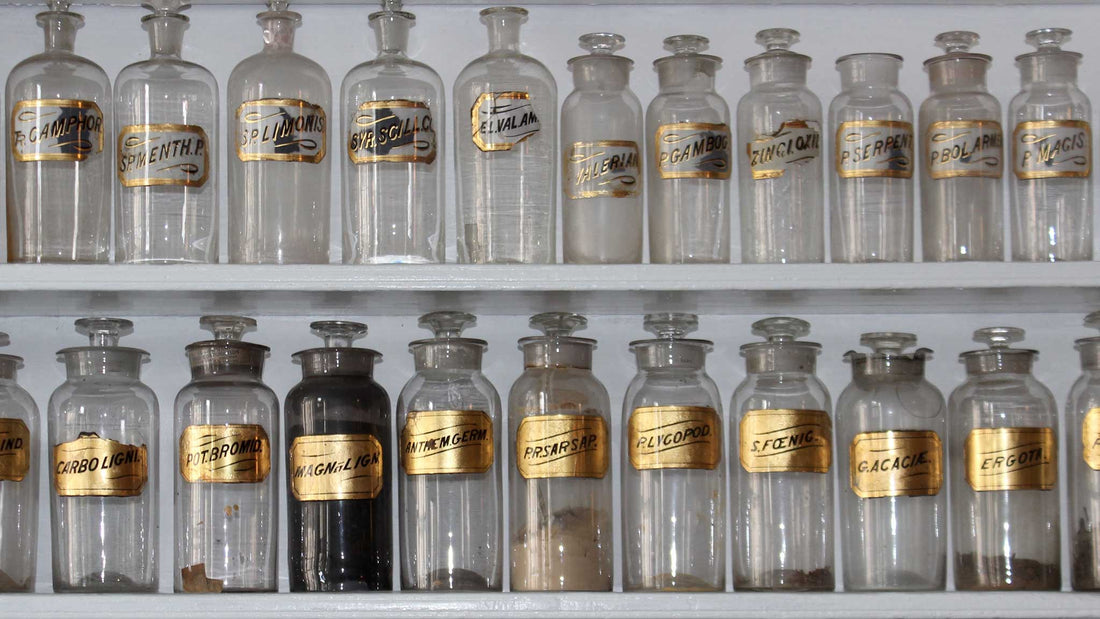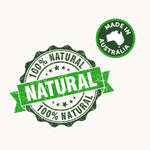
Are Preservatives Bad for Dogs? Hidden Dangers in Processed Pet Food
The use of preservatives in dog food has become so widespread, it makes it challenging for dog owners to find one without them. Similar to processed and packaged human food, preservatives are used in dog food to extend the shelf life of the product and make them last longer. This convenience, however, comes at a cost and a very high one at that. Not only does the nutritional value of food degrade the longer it sits around, preservatives can have fatal affects for your beloved pets.
What Preservatives Are Common in Dog Food?
Walk down any pet-food aisle and you’ll see bright bags promising “healthy,” “balanced,” and “complete.” But flip them over and you’ll often find a chemical cocktail keeping that food shelf-stable for months — sometimes years.
Preservatives are used to prevent spoilage, stop fats from going rancid, and keep colours looking “fresh.” The problem? Most of them were designed for industrial food storage, not canine digestion.
Here’s what’s really hiding behind those long ingredient names.
Synthetic Antioxidants (BHA, BHT)
Synthetic preservatives like BHA (butylated hydroxyanisole) and BHT (butylated hydroxytoluene) are added to stop fats and oils from oxidising — basically to stop kibble from going stale.
While approved for use in small amounts, studies have linked high or prolonged exposure to these chemicals with liver and kidney damage in animals. They’re cheap and effective for manufacturers, but not so kind to your dog’s system.
Natural Antioxidants (Vitamin E, Rosemary Extract)
Not all preservatives are bad. Natural antioxidants like tocopherols (Vitamin E), rosemary extract, and ascorbic acid (Vitamin C) serve the same purpose — slowing spoilage — but are naturally derived and far gentler on your dog’s body.
They may shorten shelf life slightly, yet they keep nutrients intact and avoid chemical residue.
Chemical Preservatives (Ethoxyquin, Propyl Gallate)
These are the heavy hitters of long-term storage. Ethoxyquin, propyl gallate, and propylene glycol are synthetic compounds used to kill bacteria, fungi, and moulds in bulk-produced pet foods.
Ethoxyquin, in particular, has raised major red flags — it’s banned in some countries for use in human food and has been linked to liver toxicity and immune issues in dogs.
Salt, Sugar & Nitrates
Manufacturers often rely on sodium nitrate, salt, and sugar to preserve flavour and colour. While small traces aren’t harmful, repeated consumption can lead to dehydration, obesity, or high blood pressure in dogs.
Sugar also feeds bad gut bacteria — the opposite of what you want for digestion and immunity.
Any dog food that is designed to be stored for a prolonged period of time, such as dog rolls, commercial pet food, kibbles etc, can contain any one (or multiple) of these preservatives.
Why Are Preservatives Bad For Dogs?
Preservatives can trigger digestive disorders, nutrient loss, and even neurological problems in dogs. Over time, they disrupt gut health and block vital vitamins like B1. High levels of preservatives in dog food can cause digestive disorders and nutrient imbalances, leading to adverse flow-on affects to a dog's overall health and vitality.
Preservatives can disrupt the delicate balance of gut flora and impair the absorption of nutrients, including vitamin B; an essential nutrient to dogs. One of the most devastating affects is thiamine deficiency (Vitamin B1) which can cause the brain to have a neurological breakdown. Signs of thiamine deficiency include decreased energy levels, poor appetite, compromised immune function, and neurological problems.
The Role of Vitamin B in Dog Health
When it comes to your dog’s daily energy and vitality, Vitamin B is one of the most important nutrient groups. It supports everything from healthy brain function to a shiny coat and a strong metabolism.
Why Vitamin B Matters
B-vitamins—especially B1 (thiamine), B6, B12, and niacin—help your dog convert food into fuel, regulate nerve signals, and maintain a healthy appetite. Without enough of these vitamins, dogs can experience:
- Low energy or fatigue
- Dull coat or itchy skin
- Loss of appetite or weight
- Neurological symptoms such as tremors or confusion
How Preservatives Disrupt Vitamin B
Synthetic preservatives such as BHA, BHT, and ethoxyquin can interfere with a dog’s ability to absorb and metabolise Vitamin B, particularly thiamine (B1). Over time, this can lead to thiamine deficiency, which affects the nervous system, immune function, and overall well-being.
The longer dog food sits on a shelf, the more its natural vitamins degrade, especially Vitamin B.
Getting Enough Vitamin B Naturally
The best way to maintain healthy Vitamin B levels is through fresh, minimally processed meals made from real meat, organs, and vegetables. These ingredients provide nutrients in their most natural and bioavailable form, without synthetic additives or degradation.
How to Avoid Preservatives in Dog Food
Avoiding harmful preservatives doesn’t need to be complicated. With a few simple checks, you can ensure your dog eats clean, safe, and nutrient-rich food.
1. Read Ingredient Labels Carefully
Avoid foods that contain BHA, BHT, ethoxyquin, propylene glycol, sodium nitrate, or “EU-approved antioxidants.” If you wouldn’t eat it yourself, your dog shouldn’t either.
2. Choose Fresh or Frozen Meals
Preservatives exist to keep food shelf-stable for long periods. Fresh or frozen meals made weekly, like Raw & Fresh, don’t need artificial preservatives to stay safe or flavourful.
3. Look for Naturally Preserved Options
If you need a longer-lasting product, look for foods preserved naturally with Vitamin E (tocopherols) or rosemary extract. These natural antioxidants slow spoilage without harming gut health.
4. Don’t Forget Treats
Many commercial dog treats are also high in preservatives and fillers. Choose natural alternatives made from real ingredients.
This is why it's crucial to ensure your dog consumes fresh, minimally processed food without the presence of harmful preservatives, in order to support their overall health and vitality.
Why Raw & Fresh Has Zero Preservatives
At Raw & Fresh, we believe dog food should be exactly that—fresh, real, and chemical-free. Every meal is prepared weekly in small batches, ensuring maximum freshness and nutritional value.
We never use artificial preservatives, colours, or fillers. Our recipes are formulated by experts to provide complete and balanced nutrition, naturally preserved through freshness and cold storage.
This approach keeps the food alive with nutrients and flavour while eliminating the risks associated with synthetic additives. It’s food the way nature intended—fresh, safe, and full of goodness.
At Raw & Fresh we have ZERO preservatives in our dog food! We make our food fresh every week and deliver it every week. We want our furry customers to be the happiest and healthiest they can be.
Build Your Dog’s Fresh Meal Plan Today
Feeding your dog shouldn’t involve guesswork, preservatives, or ingredients you can’t pronounce. With Raw & Fresh, you get real food made weekly from 100% human-grade ingredients—no additives, no synthetic vitamins, and no compromises.
Explore our range today and see the difference that fresh, preservative-free feeding makes to your dog’s energy, digestion, and long-term health.
